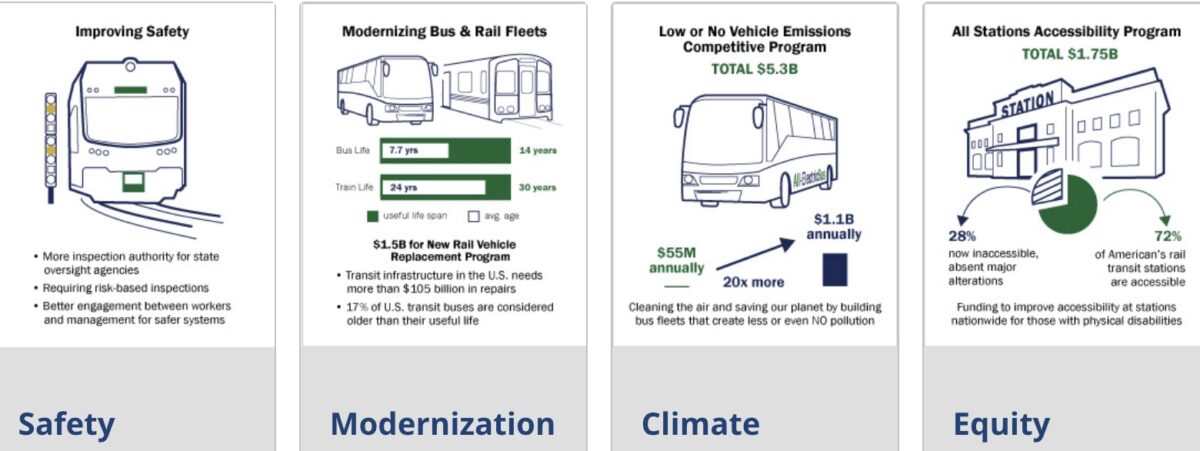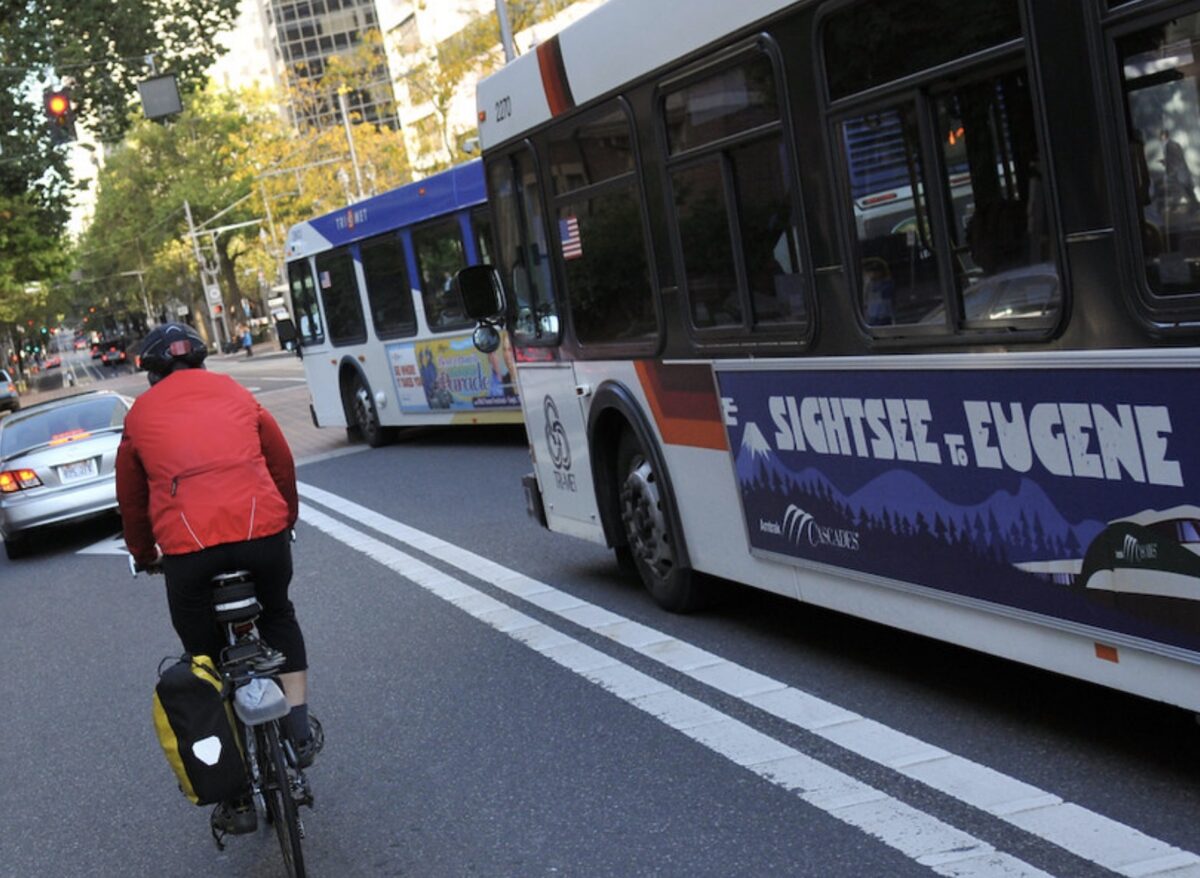The new federal transportation bill continues to bring big funding news to Oregon.
Last week the Oregon Transportation Commission finalized their decision on how to spend $412 million in discretionary funding from the Infrastructure Investment and Jobs Act (IIJA). That amount was just one-third of the $1.2 billion funding boost the state received through the Highway Trust Fund.
Yesterday the Federal Transit Administration (FTA) announced the state-by-state allocations for an additional $20 billion in funding.
Oregon will receive just over $153 million to invest in our transit systems statewide for the 2022 fiscal year. For context, Oregon received about $110 million in 2021. “This is a nice bump,” said one Oregon Department of Transportation (ODOT) source, who estimated the Portland-Vancouver area would receive about $104 million of this money.
Advertisement

Compared to other states, Oregon came in 20th place funding-wise, even though our population ranks us 27th. New York and California were at the top with about $2 billion each to spend on their transit system. Our northern neighbors of Washington received $369 million. Nationwide, this funding is a 58% increase over previous years.
The $20 billion released this week represents only 35% of what the FTA distributes to states each year.
As we shared in February, Metro has already hinted what they’d like to spend the money on. They want help to pay for bus rapid transit (BRT) on 82nd and Tualatin-Valley Highway, more electric buses, a streetcar extension in northwest Portland, and more.
For context, TriMet’s Division Transit Project, which will improve bus service between downtown and Gresham, is estimated to cost $175 million.
With such vast needs and urgency around transit service, some observers were disappointed that ODOT didn’t recommend any additional set-aside of the $412 million in IIJA flexible funds to public transit. Ian Davidson, board president of Cherriots, a transit system that serves the Salem area, wrote to the Oregon Transportation Commission in mid-February to say the lack of transit funding in the IIJA scenarios proposed by ODOT was, “surprising and disappointing.”
An ODOT source I heard from for this story said decision was made because ODOT knew this FTA allocation was on the way and that, taken together with new transit funding from the payroll tax passed by the legislature in 2017 meant that “transit providers are receiving significant increases in funding (though nowhere what they need).” So instead of funding transit through the discretionary funding, they directed more of those funds to other non-highway needs like cycling, walking, and safety projects and programs.


